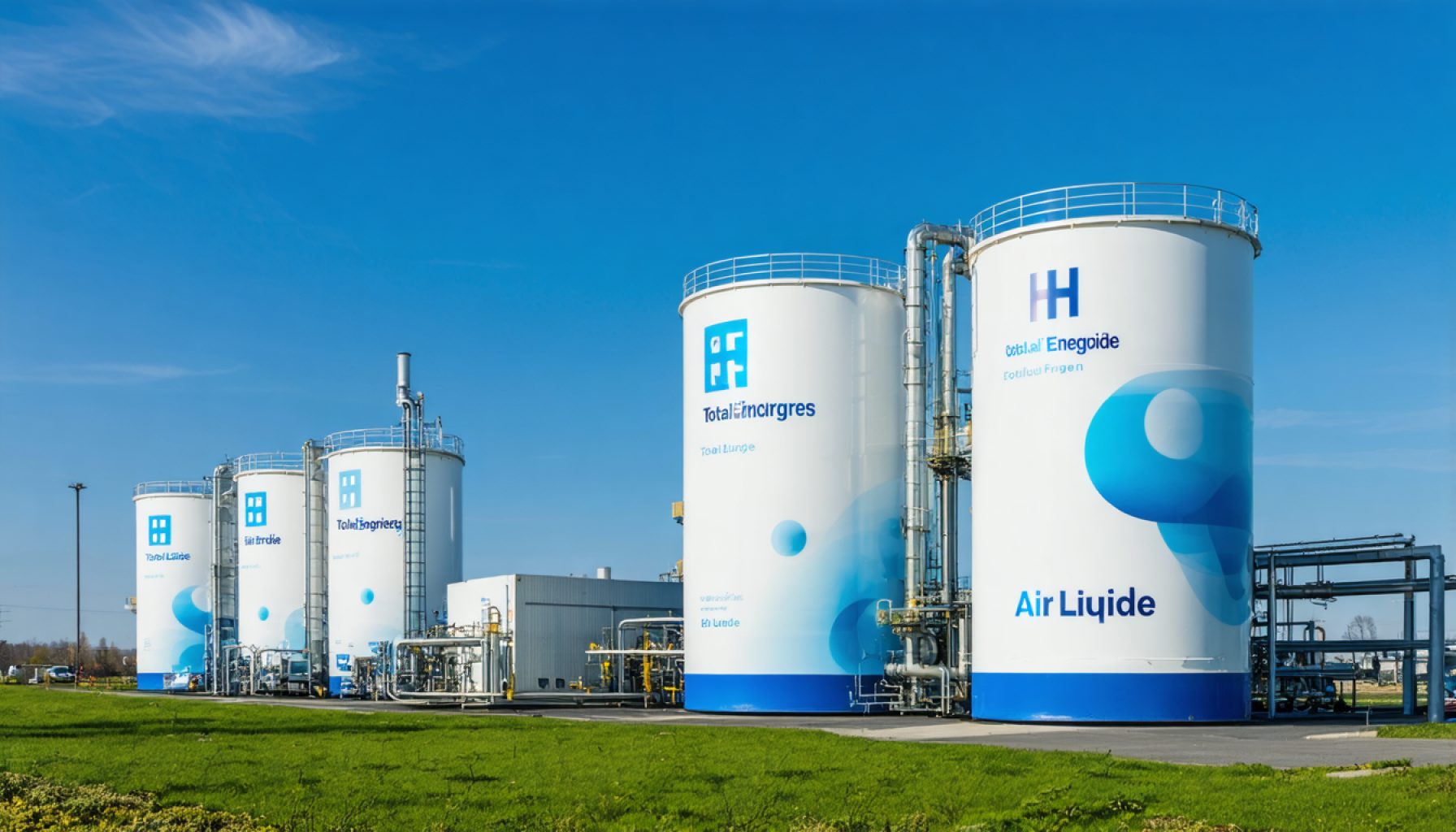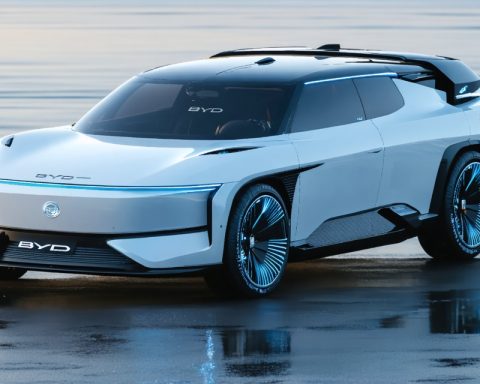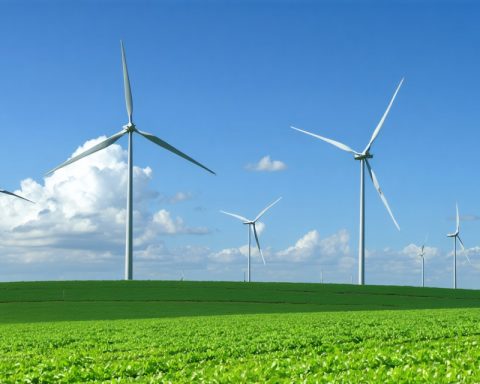- TotalEnergies and Air Liquide are launching two significant green hydrogen projects in the Netherlands, valued at €600 million, aimed at enhancing Europe’s sustainability.
- A 250 MW electrolyzer near the Zeeland refinery will utilize wind power to produce 30,000 tons of green hydrogen annually by 2029, reducing CO2 emissions by up to 300,000 tons per year.
- Another initiative, Air Liquide’s 200 MW ELYgator electrolyzer at Maasvlakte, will generate 15,000 tons of green hydrogen and cut CO2 emissions by 150,000 tons annually by 2027.
- This collaboration showcases innovative energy solutions that contribute significantly to decarbonization and the shift toward renewable energy in Europe.
- The projects exemplify the potential for sustainable energy, driven by advancements in technology and strategic partnerships.
Beneath the sprawling skies of the Netherlands, an ambitious transformation stirs. Two energy giants, TotalEnergies and Air Liquide, have conjured a plan to weave a tapestry of renewable energy across the Dutch landscape, channeling their efforts into two monumental green hydrogen projects. This €600 million endeavor marks a defining stride toward a cleaner, more sustainable Europe.
Envision a 250 MW electrolyzer soon standing proudly near the Zeeland refinery. This powerhouse, fueled by the robust winds of the OranjeWind offshore farm, will spearhead a new era, churning out as much as 30,000 tons of green hydrogen annually by 2029. The result? A remarkable reduction in CO2 emissions by up to 300,000 tons each year, symbolizing a significant leap forward in the battle against climate change.
Beyond Zeeland, additional projects glisten on the horizon, including Air Liquide’s promising 200 MW ELYgator electrolyzer at Maasvlakte. Entrusted with 130 MW from TotalEnergies, this initiative promises not only another 15,000 tons of green hydrogen but also a hefty drop of 150,000 tons in annual CO2 emissions at the bustling Antwerp site by late 2027.
This ambitious collaboration reflects more than just numbers; it’s a testament to the evolving landscape of energy. With their eyes set firmly on the prize, TotalEnergies and Air Liquide are harnessing the raw power of nature, transforming it into an emblem of Europe’s decarbonization efforts. The takeaway? A future where sustainable energy is not just a possibility but an impending reality, driven by innovation, collaboration, and the relentless pursuit of a greener tomorrow.
Green Hydrogen: The Future of Energy Transformation in Europe
How-To Steps & Life Hacks
How to Harness Green Hydrogen:
1. Understand the Technology: Green hydrogen is produced by splitting water using electrolysis powered by renewable energy sources, such as wind or solar. Familiarize yourself with electrolysis technology.
2. Identify Suitable Locations: Choose locations with abundant renewable energy resources. For instance, coastal areas with strong wind are ideal for offshore wind farms like OranjeWind.
3. Develop Strategic Partnerships: Collaborate with energy companies and technology specialists. TotalEnergies and Air Liquide combined their resources and expertise for this venture.
4. Implement Scalable Projects: Begin with pilot programs and gradually expand capacity. Start with smaller electrolyzers before committing to large-scale projects like the 250 MW facility in Zeeland.
5. Secure Funding: Projects of this magnitude require significant investment. Explore financing options from both public and private sectors.
6. Ensure Infrastructure Readiness: Infrastructure for hydrogen transportation and storage must be established to integrate green hydrogen into existing energy networks.
Real-World Use Cases
– Industrial Decarbonization: Green hydrogen can replace fossil fuels in energy-intensive industries, significantly reducing carbon footprints.
– Transportation: Fuel cell vehicles use hydrogen to generate electricity, offering a zero-emission alternative to gas-powered cars.
– Power Generation: Hydrogen can be used in gas turbines for electricity, reducing reliance on coal and natural gas.
Market Forecasts & Industry Trends
Green hydrogen is forecasted to grow substantially, with global investments expected to exceed $500 billion by 2030 (Source: Hydrogen Council). The EU, with its ambitious Green Deal, is at the forefront of investing in this technology, aiming for comprehensive integration into the renewable energy strategy.
Reviews & Comparisons
Comparing Electrolysis Technologies:
– Alkaline Electrolysis: Mature and lower-cost but less efficient and flexible.
– Proton Exchange Membrane (PEM): More efficient, better suited for fluctuating renewable sources but higher capital cost.
Controversies & Limitations
– Energy Efficiency Concerns: Green hydrogen production requires significant electricity, raising questions about efficiency.
– Infrastructure Challenges: Current hydrogen infrastructure is limited, posing challenges for widespread adoption.
Features, Specs & Pricing
– Zeeland Electrolyzer: 250 MW capacity, powered by offshore wind, producing 30,000 tons of hydrogen annually.
– Maasvlakte Electrolyzer: 200 MW capacity, integrating 130 MW from TotalEnergies.
Security & Sustainability
Green hydrogen offers enhanced energy security by reducing dependency on fossil fuels and enhancing sustainability through CO2 emission reductions.
Insights & Predictions
As more countries adopt green hydrogen, technological advancements will likely reduce costs and improve efficiency, accelerating its adoption. This trend aligns with global decarbonization efforts and can play a pivotal role in achieving net-zero emissions targets by 2050.
Tutorials & Compatibility
– Tutorials for Practitioners: Focus on installation and maintenance of electrolyzers, safety measures in handling hydrogen.
– Compatibility with Existing Systems: Hydrogen can be blended with natural gas for gradual integration into current energy systems.
Pros & Cons Overview
Pros:
– Significant CO2 emission reductions.
– Diverse applications across multiple sectors.
– Potential to stabilize energy supply with renewables.
Cons:
– High initial investment and operational costs.
– Technological challenges with hydrogen storage.
– Infrastructure development lagging behind demand.
Actionable Recommendations
– Invest in Education and Training: Preparing a workforce skilled in green hydrogen technologies is crucial.
– Policy Advocacy: Support policies promoting renewable energy expansion and green hydrogen subsidies.
– Community Engagement: Involve local communities in project development to ensure local benefits and acceptance.
For more information on renewable energy projects and hydrogen technology, visit the official TotalEnergies and Air Liquide websites.
Leveraging this revolutionary technology could be your key to participating in the global energy transition movement. Consider contributing to this green wave, whether through investment, advocacy, or simply staying informed about sustainable developments.


















